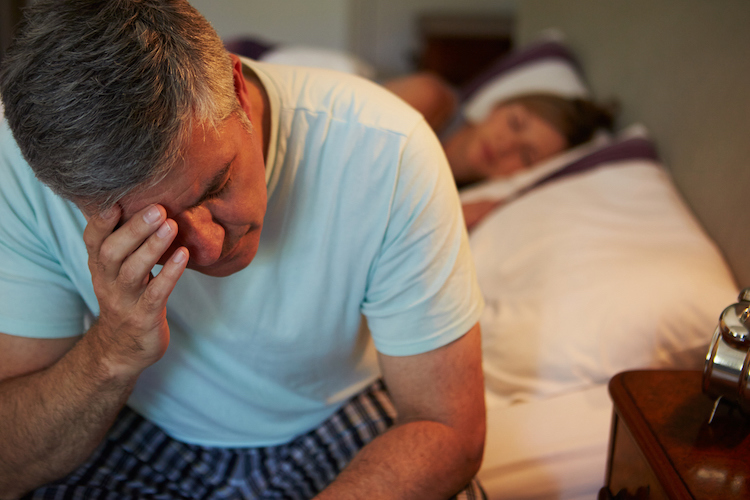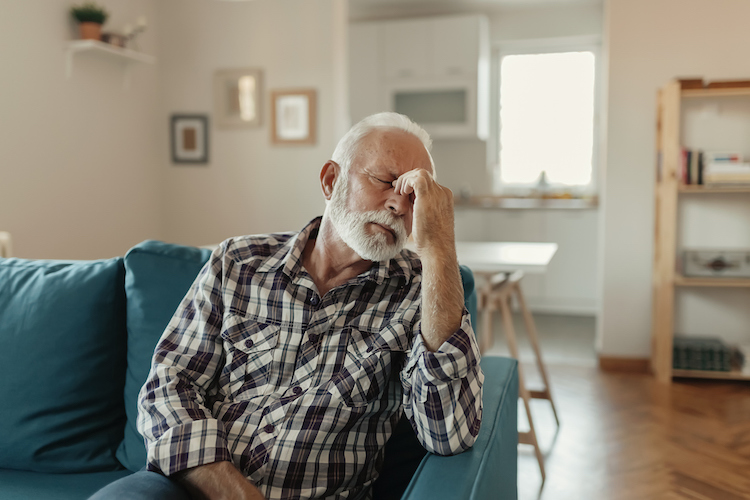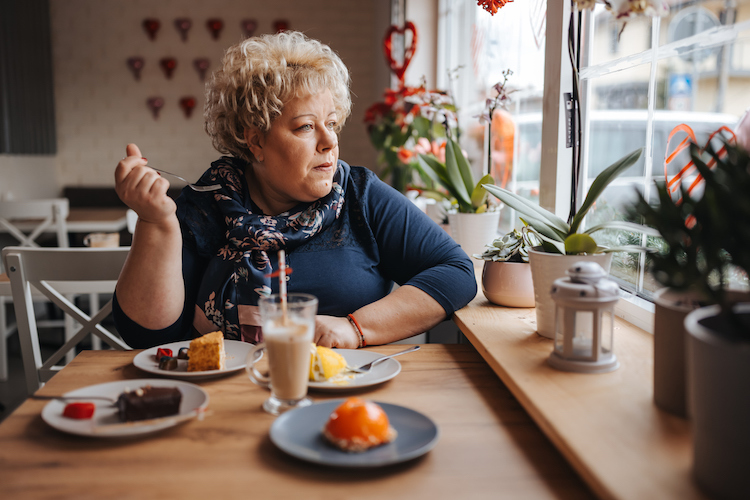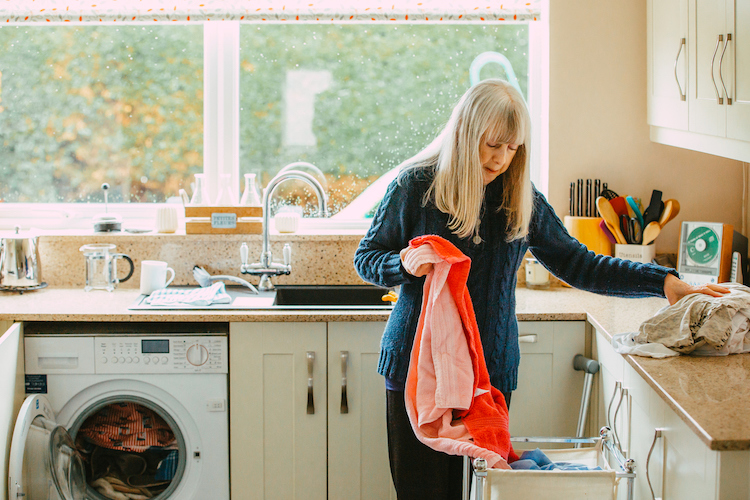Chronic anxiety can drastically diminish your quality of life as you get older.

You might not even recognize that anxiety is the quiet force wearing you down. It can manifest in subtle ways, slowly chipping away at your peace of mind, energy, and confidence. As we age, our emotional responses shift, and the stressors that once seemed manageable can begin to weigh heavier. You may think you’re just “getting older,” but anxiety could be the hidden culprit changing how you think, feel, and interact with the world.
The tricky part is how anxiety embeds itself into everyday life. It disguises itself as forgetfulness, fatigue, or irritability, creeping into your relationships and habits. But awareness is the first step toward healing. When you understand how anxiety is showing up in your life, you can begin to push back—with compassion, intention, and small, meaningful changes. These 11 subtle ways anxiety may be sabotaging your well-being are worth noticing—and addressing before they become more serious.
1. Anxiety Is Draining Your Energy—And You’re Blaming It on Getting Older

You wake up already tired, dragging yourself through the day like your body’s battery is permanently stuck at 10%. It’s easy to chalk it up to aging, but anxiety could be the real thief behind your fatigue. The constant loop of worry, even if you’re not fully aware of it, puts your body in a state of alertness, as reported by experts at WebMD. That fight-or-flight mode takes a toll, exhausting you mentally and physically.
Instead of accepting exhaustion as your new normal, it’s time to ask deeper questions. When was the last time you felt truly rested—not just in body, but in spirit? Try weaving small rituals of rest into your daily routine, whether it’s a slow morning coffee without distractions, a quiet walk, or just five minutes of breathing in stillness. Energy restoration starts when you stop fighting your feelings and begin tending to them with care.
2. It’s Keeping You Up at Night, Robbing You of Restful Sleep

There’s something about nighttime that makes anxiety louder. The distractions of the day fade away, and suddenly your mind is filled with racing thoughts, worries about the future, or regrets from the past. This mental storm makes falling asleep difficult—and staying asleep even harder. Sleep becomes shallow and restless, leaving you groggy and frustrated by morning.
When anxiety hijacks your sleep, the entire day that follows feels off balance, as mentioned by Victoria Pelham at Cedars Sinai. Creating a sleep-friendly environment helps, but it’s more than just turning off the lights. Try developing a wind-down routine that signals to your brain that it’s time to let go. Journaling for five minutes before bed or doing progressive muscle relaxation can train your mind to settle. When your night begins with intention, your sleep can become the refuge it’s meant to be.
3. Anxiety Is Sneakily Messing with Your Memory

You walk into a room and forget why. You blank on names or lose your train of thought mid-sentence. These lapses can feel frustrating and even alarming, especially as you get older. But often, they’re not about memory loss—they’re the fallout of constant mental overstimulation. Anxiety floods your mind with so much noise that it drowns out short-term memory, according to the authors at Recovery Ways.
If you’ve been blaming age for your forgetfulness, consider how often your brain is actually multitasking under pressure. Mindfulness practices and physical activity can do wonders to clear the mental fog. Even something as simple as walking outside or doing a crossword puzzle can help refocus your attention. By calming the storm within, you can create more space for clarity and recall to return.
4. It’s Making You Avoid Social Events—Leaving You Feeling Isolated

Anxiety has a subtle but powerful way of convincing you that staying home is safer. That you’ll be awkward at the party. That people will judge you, or that it’s just too exhausting to go out. The result? More and more time spent alone, even when part of you craves connection. And the more isolated you feel, the harder it becomes to break that cycle.
Social withdrawal is often anxiety’s armor—but it’s also its trap. Start small. Say yes to a short visit with a friend or accept that coffee invitation even if you feel hesitant. Remind yourself that connection doesn’t have to be perfect—it just needs to be real. With each interaction, you’re reminding anxiety that it doesn’t get to dictate the terms of your life.
5. Anxiety Is Causing You to Overreact to Small Problems

Suddenly, a misplaced item or a late appointment feels like a full-blown crisis. That’s anxiety amplifying everyday issues into major catastrophes. Your body reacts as if something terrible has happened, even when it hasn’t. This heightened sensitivity wears on your nerves and can put a strain on your relationships, as loved ones may not understand why you’re so reactive.
If you notice your fuse getting shorter, try building in moments of pause. Breathe deeply, count to five, or ask yourself if this will matter tomorrow. These tiny steps can defuse a strong emotional response and help you gain perspective. When you begin to catch yourself mid-spiral, you’ll find that your responses soften—and so does the stress they bring.
6. It’s Worsening Your Physical Aches and Pains

Your back aches, your shoulders are tense, and headaches seem to visit more frequently than they used to. While aging can explain some of it, anxiety often exacerbates physical discomfort. When you’re constantly on edge, your muscles stay tight, your posture shifts, and your body stays locked in defensive mode.
Paying attention to your body’s signals is essential. Are you clenching your jaw? Hunching your shoulders? Regular movement like yoga, stretching, or even gentle tai chi can help release this built-up tension. Combined with deep breathing or meditation, you can teach your body to find safety again. Your pain may not vanish overnight, but it can become more manageable when anxiety isn’t feeding it.
7. It’s Making You Overthink Every Decision—Paralyzing You with Doubt

You find yourself frozen in front of the grocery shelf, unsure which brand to buy. Simple decisions suddenly feel monumental, each one loaded with “what ifs.” Anxiety thrives in this mental maze, convincing you that making the wrong choice will lead to disaster. The result? Indecision becomes your new default, and your confidence slowly erodes.
To escape this trap, give yourself permission to make imperfect decisions. Start with low-stakes choices and commit to them without looking back. With practice, you’ll rebuild the inner trust that anxiety has chipped away. And with that trust comes relief—the kind that makes you feel capable and steady again.
8. Anxiety Is Destroying Your Appetite—Or Making You Eat More Than Ever

You may find yourself skipping meals without noticing or compulsively reaching for snacks you don’t even enjoy. Anxiety affects your digestive system in unpredictable ways. For some, it shuts down hunger entirely. For others, it ramps up cravings for comfort foods that briefly soothe emotional distress.
Becoming mindful of how and why you eat is the first step in reclaiming balance. Are you eating because you’re hungry—or because you’re overwhelmed? Try slowing down and eating in a quiet space, away from screens. Chew slowly, savor each bite, and check in with your emotions as you eat. Your body knows what it needs—your job is to start listening again.
9. It’s Making You Feel Like You’re Always on Edge, Even When There’s No Reason

You can’t relax. Even on a calm day, you feel like something bad is just around the corner. This constant sense of unease keeps your nervous system on high alert, draining your focus and joy. You may find yourself scanning for danger in your environment or jumping at the smallest disruption.
Learning to ground yourself can help reset that internal alarm system. Use your senses to pull yourself back into the present moment. What do you see, hear, feel right now? Practicing grounding techniques regularly can train your body to recognize safety and rest again. Over time, you’ll find that the “always on edge” feeling begins to lose its grip.
10. Anxiety Is Hurting Your Self-Confidence, Making You Doubt Yourself

You used to feel capable, competent—even proud. But now you hesitate, question yourself, or avoid taking risks. Anxiety creates an internal narrative that says, “You’re not good enough,” or “You’ll mess this up.” Over time, this story becomes harder to ignore and starts shaping your behavior.
But your worth has never depended on perfection. Begin by setting goals that are achievable and meaningful, even if they’re small. Celebrate your progress, not just your outcomes. Speak to yourself the way you would to someone you love. Confidence isn’t something you wait for—it’s something you build by showing up, again and again, with compassion for your own journey.
11. It’s Turning Everyday Chores Into Overwhelming Tasks

Doing the dishes, folding laundry, returning an email—these shouldn’t feel like mountains to climb. But anxiety magnifies them, making your to-do list feel impossible. You might procrastinate out of fear of failure or become paralyzed by the pressure to do everything perfectly.
To ease this burden, break tasks into the smallest possible steps. Focus on completing just one thing, then the next. Use timers to limit overwhelm—try setting one for 10 minutes and see how much progress you can make. Don’t wait until you feel motivated. Begin gently, knowing that action often leads to motivation. Each step forward is proof that you’re stronger than your anxiety suggests.
